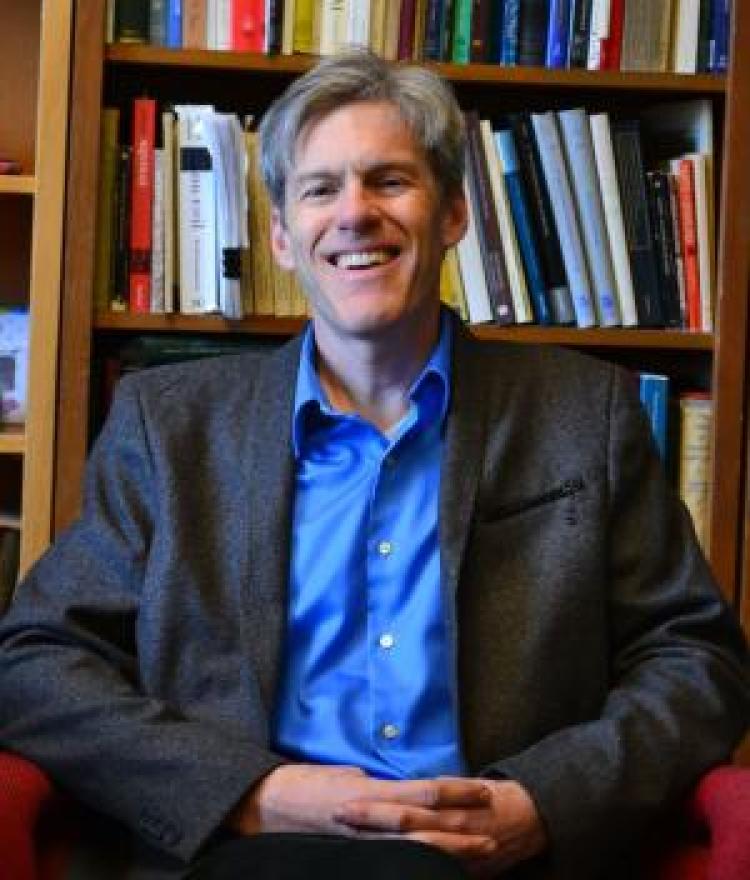If you think free will has always been a given, think again
Robert Pasnau, college professor of distinction, outlines the historical rise of and subsequent challenges to the concept of human will
Free will—humans’ ability to make choices about their own actions—is widely viewed as a given, but that perspective has changed markedly throughout history, Robert Pasnau, a University of Colorado Boulder philosopher, observes.
[video:https://youtu.be/Zw7xue91au8]

At the top of the page: Saint Augustine of Hippo Above: Robert C. Pasnau
In a video presentation that commemorates his being named a college professor of distinction, Pasnau underscores this point.
“We talk about weakness of will and strength of will. We talk about someone’s force of will,” Pasnau observes, adding that it seems natural to view humans as distinctively moral creatures: What determines our goodness or badness has “something to do with our will.”
But this framework was absent from the works of Greek thinkers such as Aristotle, Pasnau says. It’s not until Saint Augustine in the fourth century of the common era that you begin to find a “theoretical notion of will developed in any sort of detail and given any sort of a central place in human thought.”
As Augustine saw it, humans are “fallen, sinful creatures, irredeemable except for the grace of God,” Pasnau notes. “But if we’re bad, if we require God for any sort of goodness in our life, to what extent are we actually free?”
Later thinkers developed the conception of human will and humanism, but the idea faced challenges from Martin Luther and others who denied the existence of human will. Widespread skepticism of humanism lasted until the Enlightenment of the 18th century, which ushered in the contemporary view of human will.
Pasnau has spent his career understanding the history of human civilizations, particularly medieval philosophy. His research interests are epistemology (the study of knowledge) and metaphysics (the study of the nature of reality), from antiquity to modernity.
Pasnau was named a 2019 professor of distinction in the College of Arts and Sciences. He was unable to attend that year’s award celebration, so he agreed to make a video presentation with the 2020 winners, who are Elspeth Dusinberre of classics, Michelle Ellsworth of theatre and dance, and Pieter Johnson and Katharine N. Suding of ecology and evolutionary biology.
Pasnau is the editor of the Cambridge History of Medieval Philosophy and of Oxford Studies in Medieval Philosophy. His most recent book, After Certainty: A History of Our Epistemic Ideals and Illusions (OUP 2017), is based on his Isaiah Berlin Lectures, delivered at Oxford University in 2014.
He is the founding director of the Benson Center for the Study of Western Civilization and publishes a blog on medieval philosophy called In medias PHIL.
Pasnau has taught in the Department of Philosophy since 1999.

